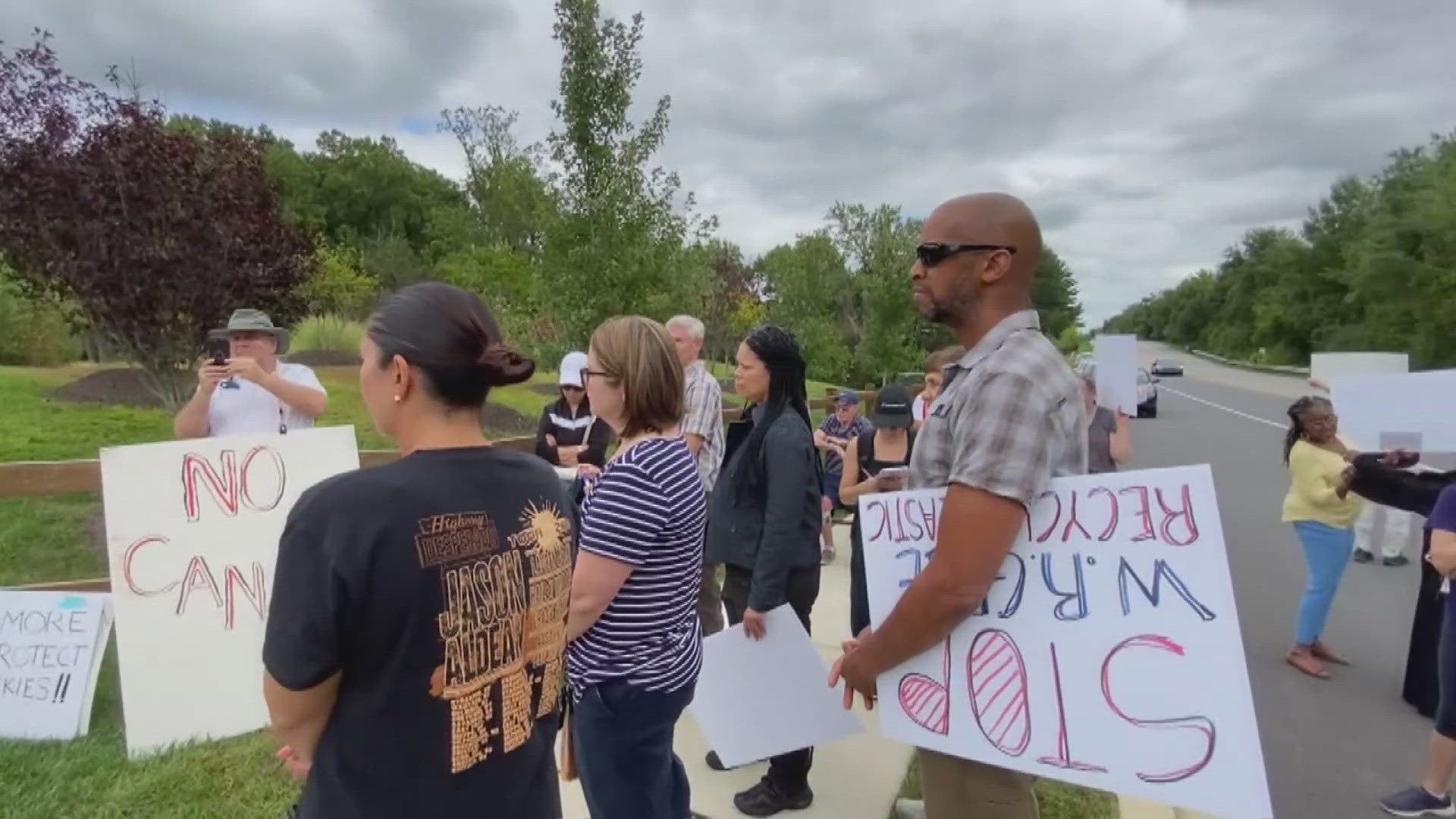COLUMBIA, Md. — Protesters concerned about their health are resisting a big chemical company's plans to build a plastic recycling research lab in their backyard. But the company says the protesters' fears are misguided and fueled by false information.
Grace, a Fortune 500 chemical company, became the site of protests after the company applied for a state air emissions permit to build its "pilot plant" at their headquarters in Columbia, Maryland, which has been the site of an active groundwater contamination cleanup dating back to the 1980s.The permit says the facility will emit small amounts of at least six toxic air pollutants, including including butadiene, a known human carcinogen.
The protesters include Vedangana Saini, a neuroscientist and medical writer who lives in the new Cedar Creek subdivision less than a quarter mile away from the Grace campus. Saini has a life threatening lung condition and fears her children could develop similar conditions from long-term exposure to the proposed low-level emissions from Grace.
"The idea that they'll have a respiratory illness because someone is building a plastic processing facility near us, that scares me," Saini said.
In a written statement, Grace says the protesters are trafficking in "false information." In a question and answer memo from Maryland's Department of Environment, Grace compares the emissions from its proposed pilot plant to less than the emissions a school bus driving a short distance. Grace also compared the emissions to baking a cake inside a home with a gas oven.
"The application demonstrates that everyday activities like people breathing, and a school bus and a diesel truck driving short distances, produce more emissions," Grace said in their statement responding to the protest. "As a specific example, the MDE calculations show a negligible increase of nitrogen oxides in the environment at the ground level– three parts per trillion. For context, baking a cake in a gas stove produces 1000x that amount at its maximum."
Grace's permit application says it will “burn off” some of the residual left over from its chemical plastic recycling process by achieving "combustion."
"There will NOT BE ANY incinerating or burning of plastics," Grace wrote in their statement.
The company says its plastics recycling project stands to benefit the environment by solving obstacles to plastic recycling.
Protesters claim the public was cut out of the process, because no one directly notified neighbors of a public comment period that’s now closed.
Maryland’s Department of Environment will decide on whether or not to issue an air emissions permit.
In 2014, Grace paid more than $63 million to settle contamination claims in communities across the U.S., and in 2001 the company filed for bankruptcy as claims against the company to recover past and future cleanup costs at sites contaminated by asbestos and other hazardous substances loomed.

